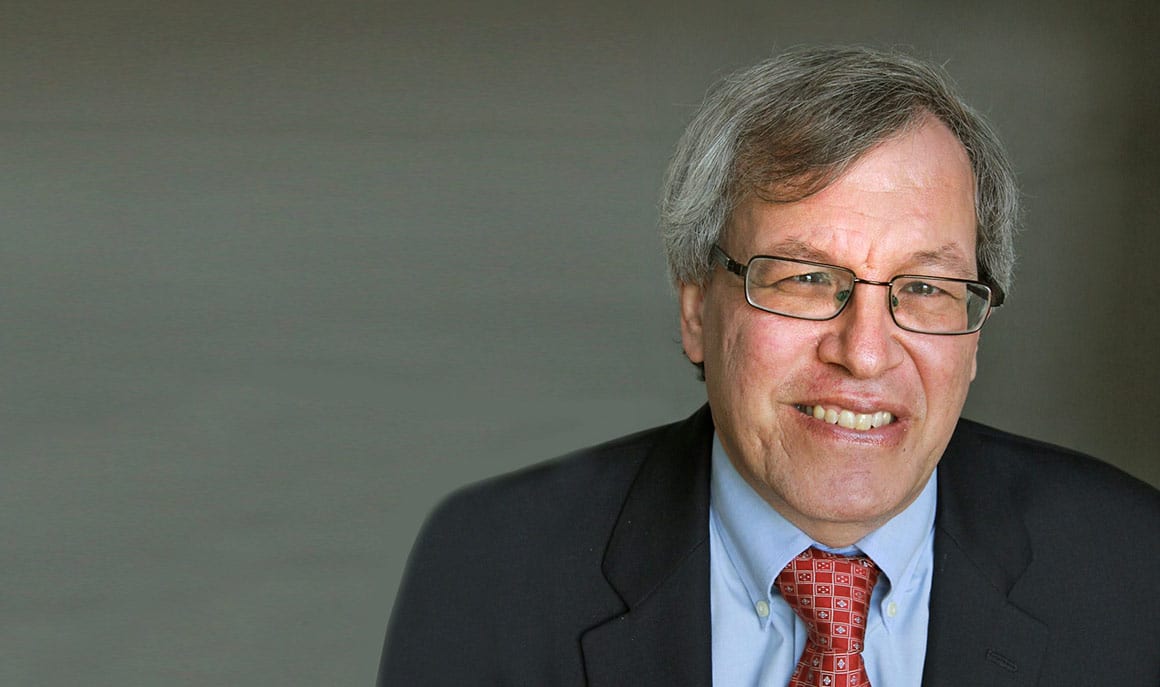
Those who have worked closely with Erwin Chemerinsky say Berkeley Law struck gold in its search for a new dean. His mid-May appointment triggered a laudatory torrent from coast to coast.
“Erwin will bring an enormous range of qualities and talents to the deanship,” says Professor Katharine Bartlett ’75, Duke University’s law school dean for three years that Chemerinsky taught there. “These include a prodigious energy, a passion for the law and for legal education, an ability to communicate with a wide range of audiences, an encyclopedic knowledge of constitutional law, and a warmth and profound compassion toward others. He is perfect for Berkeley, and I’ll be proud to claim him as the dean of my alma mater.”
Chemerinsky left Duke in 2008 to become the founding dean of UC Irvine School of Law, where he has spent the past nine years. He starts July 1 at Berkeley after an open, national search that considered internal and external candidates. Chemerinsky says he is “thrilled and humbled” by what he calls “this amazing opportunity.”
Earlier this year, National Jurist magazine named Chemerinsky the most influential person in legal education in the United States. A renowned authority on constitutional law, federal practice, and civil rights, he has taught courses on constitutional analysis, appellate litigation, and free-speech rights, among others, and plans to continue teaching at Berkeley.
Chemerinsky has written 10 books—another will be published this summer—and nearly 200 law review articles. The first member of his family to attend college, he is a prolific op-ed writer and media commentator who has argued cases before the U.S. Supreme Court and various federal appellate courts.
Berkeley Law Professor and dean search committee member Sonia Katyal calls Chemerinsky a “living legend … who exemplifies the very best that the field of law has to offer: brilliant, warm-hearted, thoughtful, open-minded, and deeply engaged in the culture of public service.”
LEADING AND LISTENING
Chemerinsky’s first order of business inside Boalt Hall: paying close attention to those who inhabit it.
“The most important thing for me to do at the start is listen and learn,” he says. “Berkeley is a well-established school with its own culture and procedures. I want to meet with each faculty member in the first couple months, have regular coffees with students, hold town halls, have monthly meetings with staff, and get to know each department.”
Ohio State University President Michael Drake was UC Irvine’s chancellor for the first six years of Chemerinsky’s tenure there. They worked closely together, co-teaching a freshman undergraduate seminar that Drake calls one of the highlights of his academic career.
“In addition to being the perfect founding dean, he is a master teacher, and certainly among a handful of the most sought-after legal minds in the world,” Drake says.
When Chemerinsky launched Irvine Law, he persuaded the school’s leadership to approve free tuition for all three years to the first entering class. That helped vault the school from unaccredited to a top 30 ranking. “It succeeded beyond what I could have ever imagined,” he says.
Chemerinsky brings similar resolve to Berkeley Law, which he believes “should aspire to be truly one of the top five law schools in the country, by any and every measure.”
Fundraising is his first priority in the face of declining state support of higher education. He sees that as pivotal to retaining and recruiting top faculty, keeping the school accessible to qualified applicants from all backgrounds, and upholding Berkeley Law’s public mission.
While Chemerinsky faces some formidable challenges, Bartlett cautions against underestimating him. “When I asked something of Erwin, he never said no,” she recalls. “His ability to multitask exceeds anyone I have ever known.”
University of Southern California law professor Scott Bice, Chemerinsky’s dean for 17 years there, concurs. Bice marvels at his “legendary energy that inspires awe and affection … Berkeley has made a superb choice. It is a rare combination of achievements to excel as scholar, teacher, advocate, and administrator. Erwin is really one of a kind.”
FOSTERING INCLUSION
Chemerinsky is plenty familiar with his new employer as his wife, Irvine Law Professor Catherine Fisk ’86, and father-in-law are Boalt graduates.
“I think it’s so important that Berkeley Law be an inclusive community,” he says. “That involves many things, including diversity of faculty, staff, and students. It also involves being a community where all members feel welcome and can thrive within it. I think Melissa Murray has done an outstanding job in the most difficult circumstances as interim dean. I need to build on that.”
Bartlett says Chemerinsky’s track record in that area should comfort those who care about the school.
“I’ve always been impressed by his ability to relate to others ‘across the aisle,’” she explains. “While his own political commitments are clear and firmly held, he respects those with contrary points of view and supports their right to advance them. At Duke, he was adored equally by the Federalist Society and the American Constitution Society.”
Given that the legal marketplace demands “graduates who are ever-more practice ready,” Chemerinsky appreciates that “Berkeley has a wonderful clinical program and pro bono program. I want to maintain those, and I want to enhance them.”
He is also eager to engage with alumni. Bice anticipates a warm reception, calling Chemerinsky “a great teacher, a prolific scholar, a gifted appellate advocate, a highly successful founding dean of a first-rate law school, a muchpublished public intellectual, and an engaging colleague.”
Drake, his former chancellor, agrees. “Erwin Chemerinsky is a wonderful choice,” he says. “One of the nation’s outstanding legal scholars leading one of the nation’s premier law schools—a perfect match.”
—Andrew Cohen
